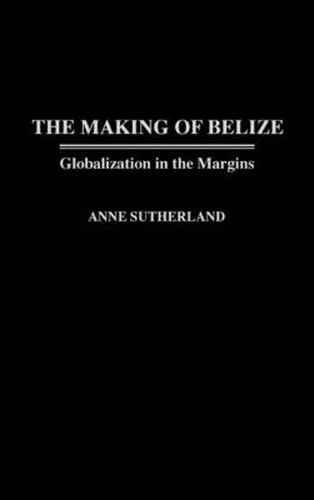Readings Newsletter
Become a Readings Member to make your shopping experience even easier.
Sign in or sign up for free!
You’re not far away from qualifying for FREE standard shipping within Australia
You’ve qualified for FREE standard shipping within Australia
The cart is loading…






Globalization theorists predict that the forces of globalization will divide the countries of the world into a few winners and many losers. This book challenges that idea and suggests that the very margins of the global world system may become the areas of the most creative cultural activity, where the construction of local relations and group identities within a deterritorialized, transnational political economy allows for a creative, postmodernism. The difficulties facing those who are globalizing in the margins come from powerful transnational movements such as the environmental movement, the international drug trade, and migrations of people including international tourists. Ironically, instant contact with the rest of the world has created a sense of local identity that transcends the local and is truly mulitcultural. Belize is a diverse, multicultural society that is both cosmopolitan and deterritorialized, searching for new forms of collective expresion, identity, and imagined possibilities, coming into its own as a nation at a time of increasing awareness of global social realities. Perhaps the greatest challenge faced by Belizeans is the power of the transnational eco-colonialists who have, with missionary zeal, garnered control of land and resources and placed themselves in positions of political power. The present is an end of history for Belize and the beginning of a new era, one that is peculiarly postmodern, globalized, and creative.
$9.00 standard shipping within Australia
FREE standard shipping within Australia for orders over $100.00
Express & International shipping calculated at checkout
Globalization theorists predict that the forces of globalization will divide the countries of the world into a few winners and many losers. This book challenges that idea and suggests that the very margins of the global world system may become the areas of the most creative cultural activity, where the construction of local relations and group identities within a deterritorialized, transnational political economy allows for a creative, postmodernism. The difficulties facing those who are globalizing in the margins come from powerful transnational movements such as the environmental movement, the international drug trade, and migrations of people including international tourists. Ironically, instant contact with the rest of the world has created a sense of local identity that transcends the local and is truly mulitcultural. Belize is a diverse, multicultural society that is both cosmopolitan and deterritorialized, searching for new forms of collective expresion, identity, and imagined possibilities, coming into its own as a nation at a time of increasing awareness of global social realities. Perhaps the greatest challenge faced by Belizeans is the power of the transnational eco-colonialists who have, with missionary zeal, garnered control of land and resources and placed themselves in positions of political power. The present is an end of history for Belize and the beginning of a new era, one that is peculiarly postmodern, globalized, and creative.